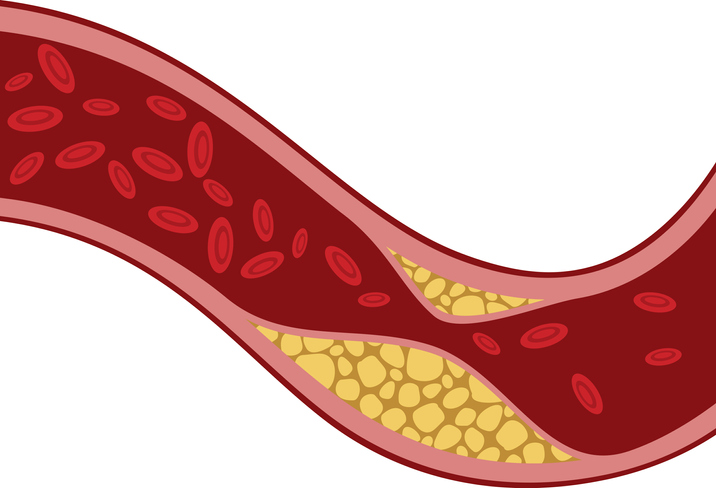
Getting your cholesterol levels checked is an important part of staying healthy. High cholesterol increases your risk for heart disease and stroke, two leading causes of death in the United States.
Knowing your cholesterol status can help you stay in control of your health.
Cholesterol is a waxy substance that your body needs to make hormones and digest fats. Your body makes all the cholesterol it needs, but you can also get cholesterol from eating certain foods, such as egg yolks and fatty meats. Having high blood cholesterol can lead to plaque buildup in the arteries, putting you at risk for heart disease and stroke. High blood cholesterol doesn’t have symptoms, which is why getting your cholesterol levels checked is important.
You should get your cholesterol checked at least every 5 years. If you have cardiovascular risk factors, talk with your provider about getting tested more often.
At what age should I get screened for high blood cholesterol?
About 1 in 5 adolescents have an unhealthy cholesterol reading,and nearly 93 million U.S. adults aged 20 or older have high cholesterol.But since high cholesterol doesn’t have symptoms, many people don’t know their levels are high.
Cholesterol should be checked starting early in life – even children and adolescents should have their cholesterol checked.
Cholesterol testing should be done:
- Every 5 years for people aged 20 or older who are at low risk for cardiovascular disease.
- More frequently than every 5 years for people with cardiovascular disease risk factors.
If your family has a history of early heart attacks or heart disease, or if a child has obesity or diabetes, doctors may recommend screening for high cholesterol more often.
What are risk factors for high blood cholesterol?
Lifestyle, some health conditions, and family history can raise your risk for high cholesterol. Your doctor may suggest you have your cholesterol checked more often if you have risk factors, such as:
- A family history of heart disease or high blood cholesterol. You are more at risk of having high cholesterol if other people in your family have it. This may be due to genetics, but it may also be that families share the same unhealthy lifestyle habits. Some people also have a genetic condition called familial hypercholesterolemia, which can cause high levels of low-density lipoprotein (LDL), or “bad” cholesterol from a young age.
- Diabetes. Type 2 diabetes raises “bad” cholesterol and lowers high-density lipoprotein (HDL), or “good” cholesterol, raising the risk for heart disease and stroke.
- Older age. As you age, your body can’t clear cholesterol as well as it used to.
- Being male. Men tend to have higher LDL and lower HDL cholesterol levels than women do. But after menopause (around age 55), LDL cholesterol levels in women increase.
- Being overweight or obese. Excess weight, unhealthy eating habits, and lack of physical activity can lead to high cholesterol.
- Previously having had high cholesterol. If you have a history of high cholesterol, your doctor may want you to keep a closer watch on your cholesterol.
What do I need to know before getting screened?
A cholesterol test is a simple blood test. Your doctor may tell you not to eat or drink anything except water for 9 to 12 hours before the test. The results give you four measurements:
- Total cholesterol. Less than 200 mg/dL is considered normal.
- LDL cholesterol. Less than 100 mg/dL is considered normal. LDL is sometimes called “bad” cholesterol because it can build up and clog your arteries, eventually leading to heart disease or stroke.
- HDL cholesterol. It is best to have more than 40 mg/dL. HDL is sometimes called “good” cholesterol because it can help clear arteries of cholesterol buildup.
- Triglycerides. This is a type of fat in the blood. Normal levels are typically below 150 mg/dL.
How can I keep healthy blood cholesterol levels?
Talk to your doctor about your numbers. Your risk of disease depends on other factors, too, in combination with high cholesterol. To keep your cholesterol managed, you should do the following:
- Choose healthy foods. Limit foods that are high in saturated or trans fats, sugar, and sodium (salt). Choose foods high in fiber, such as fresh fruits and vegetables, and in unsaturated fats, such as avocados and nuts.
- Stay physically active. You should get at least 2 hours and 30 minutes of moderate exercise, such as biking or brisk walking, every week.
- Don’t smoke. Smoking damages the blood vessels and greatly increases the risk for heart disease and stroke. If you don’t smoke, don’t start. If you smoke, learn how to quit.
- Take medicine if necessary. A healthy diet and physical activity can help many people reach healthy cholesterol levels, but some people may need medicines to lower their cholesterol. Always take your medicine as prescribed.
We’re Here for You
The healthcare professionals at StarMed Healthcare are here to help. Open 365 days per year with walk-ins welcome, StarMed is here for you when you need us. To find a location near you, visit starmed.care/locations/
